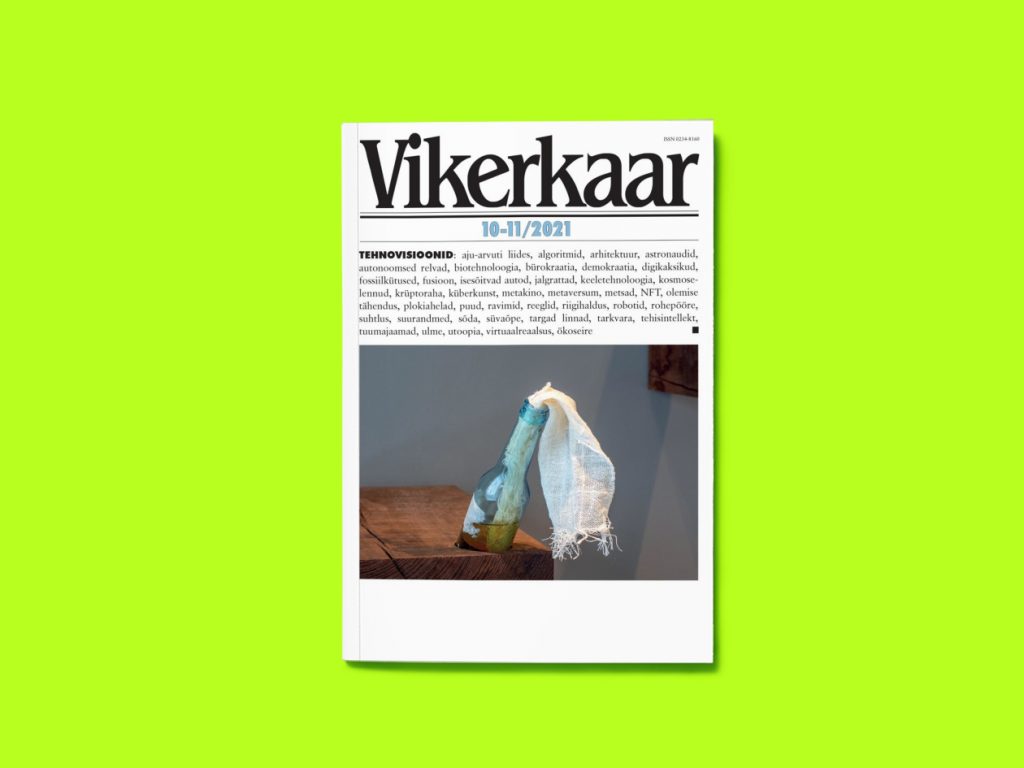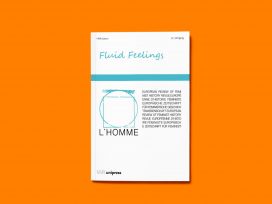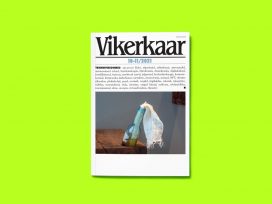In a technology-themed issue of ‘Vikerkaar’: why the future of mobility is public and integrated; why climate change is a boon for biotech; and why cheap energy is not green energy.
Self-driving cars, fusion reactors, space colonization – there is no shortage of inspiring visions of the future. They just always seem to remain at about ten years distance. What is hype and what is serious when it comes to predicting the development of future technologies? Vikerkaar posed this question to twenty-four experts, working in fields ranging from biotechnology to military AI. Their answers varied from optimistic visions of progress to warnings of Frankenstein-like meddling with things we do not properly understand.

A new vision of mobility
Technological advance is not written in stone, argues sociologist Laur Kanger. Developers of self-driving cars would like see their products as inevitable; yet much depends on the social and political context, which is up to us to create. Cars still occupy a central role in our lives; just, instead of owning them, we rent them using apps. But a different future – one based on mobility justice, environmental concerns, and a strong public ethic – might imagine ‘mobility as a public service’.
‘Instead of different forms of mobility competing with one another’, Kanger writes, ‘the central principle would be one of perfectly integrated public transportation. This would entail support for many different kinds of mobility (e-bikes, buses, hydrogen trains, hyperloops) and ways of connecting them (trip planners, park-and-ride type car parks, peer-to-peer car sharing).’
Biotech dilemmas
Biotechnology has promised to revolutionize the world on several occasions. But in the era of climate change, its time may finally have come, write Erkki Karo and Petri-Jaan Lahtvee. First steps have already been taken: the Japanese company Spiber uses yeast to produce a silk that can replace synthetic materials based primarily on petrochemicals. In food production, plant-based alternatives to animal products – such as plant-based cheese – offer opportunities to lower emissions in agriculture.
Should such technologies scale up, though, they will generate difficult social debates. ‘What is the ethical choice: to continue to exploit nature without interfering in its evolutionary processes, or accept some amount of bioengineering in order to cope with the pressures of population growth?’
Other articles imagine the future of technologies of all scales: from the ongoing promise of the bicycle, a hundred-year-old innovation that still entices cities wanting to cut down on congestion and exhaust pollution; to the state of nuclear reactors which pose the classic dilemma of cheap energy – would it lead to a more sustainable future or simply stimulate more consumption?
This article is part of the 19/2021 Eurozine review. Click here to subscribe to our weekly newsletter to get updates on reviews and our latest publishing.
Published 21 December 2021
Original in English
© Eurozine
PDF/PRINTNewsletter
Subscribe to know what’s worth thinking about.
Related Articles

The technological link between the rifle and the film camera, the medial links between the Gulf War and Star Wars, the colonial history of bombs – piecing together historical and contemporary fragments reveals an image of Kurdistan as a testing ground for military technology unleashed without responsibility for its consequences.

While China moves into its fifth decade of extracting rare earths and raw materials, Europe remains stuck between nationalistic industry priorities and democratic principles.









